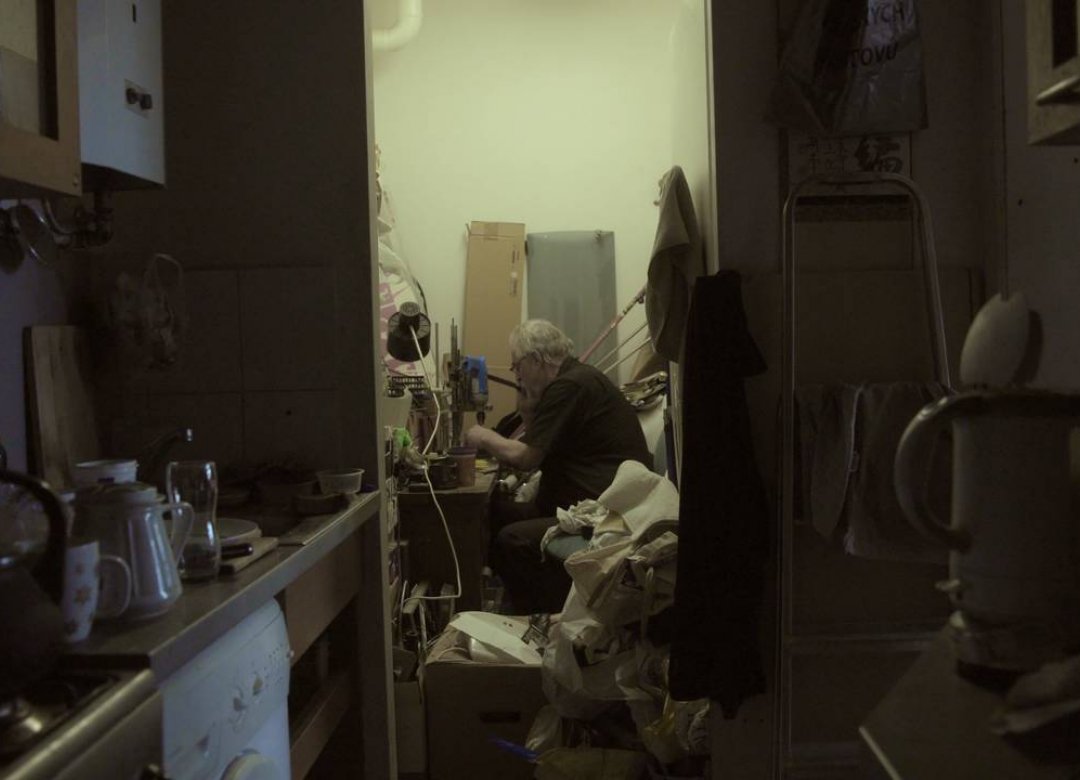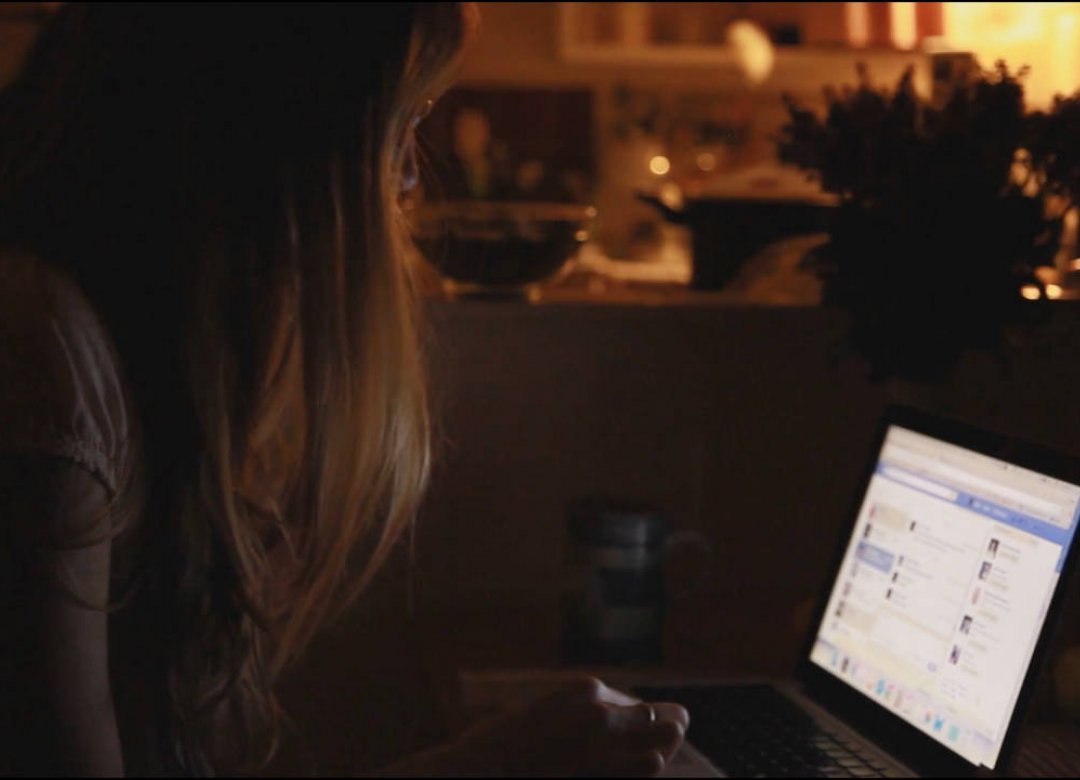The 2020 edition of Ex Oriente Film workshop includes three Czech and Slovak projects. Director Greta Stocklassa is working on a film about Swedish diplomat and politician Hans Blix, Kateřina Turečková maps ways of manipulation in a portrait of a Czech sculptor Pavel Opočenský, while Diana Fabiánová is trying to find an answer to the question: Is it possible to have a happy, monogamous relationship?
Blix
Dir. Greta Stocklassa
Prod. Radovan Síbrt
Czech Republic, Sweden
 At a first glance, Hans Blix seems like a common Swedish pensioner – he spends his days in his dark Stockholm apartment, he takes long afternoon walks with his wife, he tends the garden at his summer house, he plays with the grandkids and recently, he quietly celebrated his 91st birthday with the family. The photos on the walls of his dark apartment reveal that this seemingly boring old man stood, not so long ago, side by side with the most powerful men on the planet. He shook hands with presidents of the democratic countries as well as with legendary dictators feared by the whole Western world. He stood in the epicenter of geopolitical turning points that impacted the politics of today. Sixteen years ago, Hans Blix received the most important task of his career. At the end of his life, Hans Blix is reviewing his life decisions. Is this inconspicuous man, who strived for appeasement all his life, responsible for genocide, wars and millions of lives wasted?
At a first glance, Hans Blix seems like a common Swedish pensioner – he spends his days in his dark Stockholm apartment, he takes long afternoon walks with his wife, he tends the garden at his summer house, he plays with the grandkids and recently, he quietly celebrated his 91st birthday with the family. The photos on the walls of his dark apartment reveal that this seemingly boring old man stood, not so long ago, side by side with the most powerful men on the planet. He shook hands with presidents of the democratic countries as well as with legendary dictators feared by the whole Western world. He stood in the epicenter of geopolitical turning points that impacted the politics of today. Sixteen years ago, Hans Blix received the most important task of his career. At the end of his life, Hans Blix is reviewing his life decisions. Is this inconspicuous man, who strived for appeasement all his life, responsible for genocide, wars and millions of lives wasted?
Mastery
Dir. Kateřina Turečková
Prod. Vít Janeček
Czech Republic
 A documentary essay about manipulation rooted in the power and position of a famous male artist and specific life story of prominent Czech sculptor Pavel Opočenský. Director Kateřina Turečková builds a critical essay against the backdrop of his life, experience, thoughts, and memories, presenting the principles of power and manipulation. Tools and methods of control are not exclusive to the mass media or political parties. Even more so, they are principles ordinary people exploit to influence the values of others in everyday communication. Opočenský is an ambivalent prototype of borderline behaviour usually received with shallow sympathy. The only possibility of conflict is presented by confrontation with his victims, the director, or directly – with the audience’s moral values. The film’s stylized, formally differentiated layers will outline diverse approaches to seemingly clear-cut questions and answers about who has “mastery” over us.
A documentary essay about manipulation rooted in the power and position of a famous male artist and specific life story of prominent Czech sculptor Pavel Opočenský. Director Kateřina Turečková builds a critical essay against the backdrop of his life, experience, thoughts, and memories, presenting the principles of power and manipulation. Tools and methods of control are not exclusive to the mass media or political parties. Even more so, they are principles ordinary people exploit to influence the values of others in everyday communication. Opočenský is an ambivalent prototype of borderline behaviour usually received with shallow sympathy. The only possibility of conflict is presented by confrontation with his victims, the director, or directly – with the audience’s moral values. The film’s stylized, formally differentiated layers will outline diverse approaches to seemingly clear-cut questions and answers about who has “mastery” over us.
Happily (un)Faithful
Dir. Diana Fabiánová
Prod. Silvia Panáková, Maia Martiniak
Slovakia
 Infidelity is one of the most complex and most destructive phenomena, we’ve been living with for millennia. We are obsessed with it almost as much as with eternal love. Without infidelity there wouldn’t be Greek mythology or hundreds of songs. However, in the current society it is perceived controversially. Although officially and formally denounced as morally unacceptable, it is secretly experienced by at least a third of couples. Infidelity has always had an impact on the history of mankind and of individuals, too. It is a phenomenon that concerns every one of us, either distantly, or closely. It has never been easier to cheat, but due to modern technologies, as much as to reveal cheating. Family life – as we remember it from our childhood – is giving way to changing male–female roles, behavioral patterns, satisfaction rate in relationships, and ability to open oneself to mutual intimacy. The other side of the coin is the remaining vulnerability of the human soul and everyone’s deep desire to meet his or her soulmate.
Infidelity is one of the most complex and most destructive phenomena, we’ve been living with for millennia. We are obsessed with it almost as much as with eternal love. Without infidelity there wouldn’t be Greek mythology or hundreds of songs. However, in the current society it is perceived controversially. Although officially and formally denounced as morally unacceptable, it is secretly experienced by at least a third of couples. Infidelity has always had an impact on the history of mankind and of individuals, too. It is a phenomenon that concerns every one of us, either distantly, or closely. It has never been easier to cheat, but due to modern technologies, as much as to reveal cheating. Family life – as we remember it from our childhood – is giving way to changing male–female roles, behavioral patterns, satisfaction rate in relationships, and ability to open oneself to mutual intimacy. The other side of the coin is the remaining vulnerability of the human soul and everyone’s deep desire to meet his or her soulmate.
The article is part of our Czech Doc Newsletter #13, released with kind support of APA - Audiovisual Producers' Association.